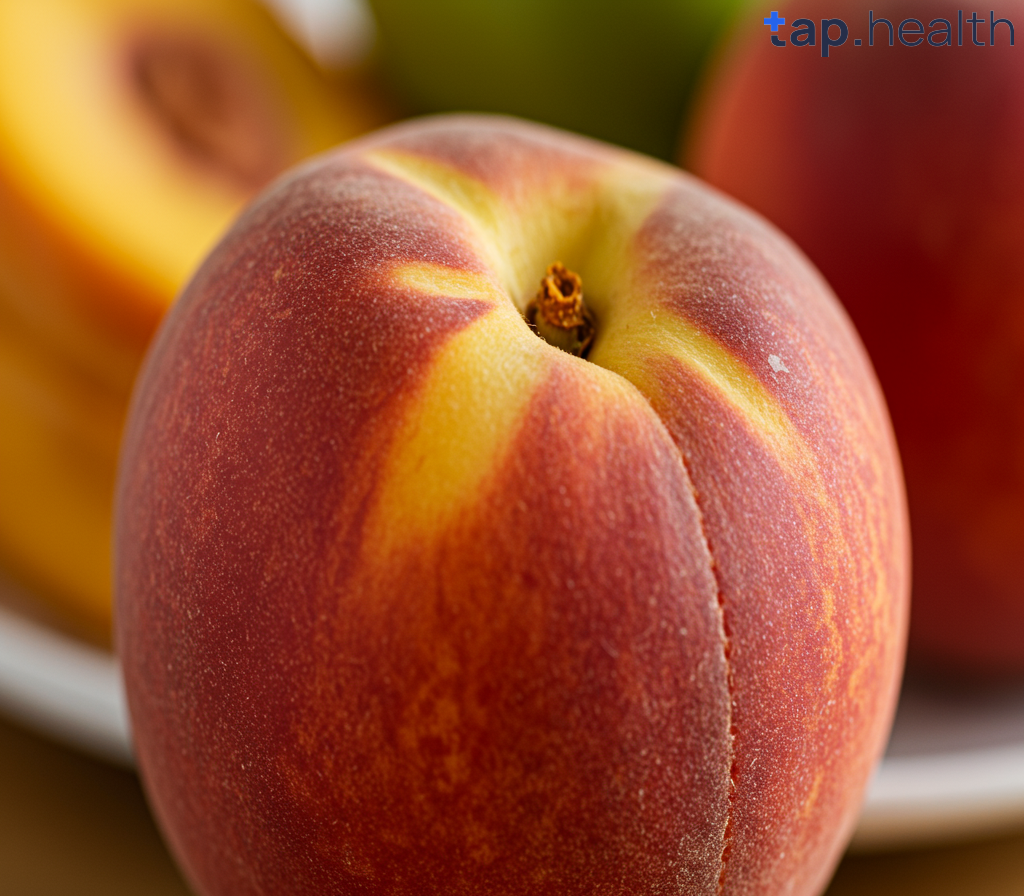Table of Contents
- Beetroot for Better Sleep: A Diabetes Perspective
- How Beetroot Improves Nerve Function in Diabetics
- Beetroot and Blood Sugar: Impact on Sleep Quality
- Boosting Nerve Health with Beetroot: Diabetes Management Guide
- Does Beetroot Help with Diabetic Neuropathy and Sleep?
- Frequently Asked Questions
- References
Are you living with diabetes and struggling to get a good night’s sleep? Or perhaps you’re experiencing nerve discomfort? You might be surprised to learn about the potential benefits of a common root vegetable. This blog post explores Beetroot’s Impact on Sleep and Nerve Function in Diabetes, examining the latest research on how this vibrant red vegetable could help improve your overall health and well-being. We’ll delve into the science behind beetroot’s potential benefits, discussing its nutrient profile and how it might interact with your body to alleviate some of the common challenges associated with diabetes. Let’s uncover the fascinating connection between this humble root and improved sleep and nerve health.
Beetroot for Better Sleep: A Diabetes Perspective
Diabetes significantly impacts sleep, increasing the risk of sleep apnea and related disorders by a staggering 70%. This disruption can further complicate diabetes management and overall well-being, especially prevalent in hot and humid climates common across India and other tropical countries. But what if a simple, readily available food could offer some relief? Enter beetroot.
Beetroot’s Nutritional Powerhouse for Diabetics
Beetroot is rich in nitrates, which convert to nitric oxide in the body. Nitric oxide is a potent vasodilator, meaning it relaxes and widens blood vessels. This improved blood flow can address some of the circulatory issues contributing to sleep apnea in diabetics. Furthermore, beetroot’s high antioxidant content combats oxidative stress, a factor linked to both diabetes and poor sleep quality. The natural sugars in beetroot are also less likely to cause the sharp blood sugar spikes that can disrupt sleep compared to refined sugars.
Practical Tips for Incorporating Beetroot into Your Diet
Incorporating beetroot into your diet is easy and versatile. Indians can enjoy it in various forms – from the popular beetroot curry (beetroot chukka) to salads and even beetroot juice. Those in other tropical regions can explore similar dishes or simply add grated beetroot to smoothies and soups. Consider starting with a small portion daily and gradually increasing intake to assess tolerance and monitor blood sugar levels. Remember to consult your doctor or a registered dietitian to personalize your beetroot intake based on your specific diabetic needs and health conditions.
Improved Sleep and Nerve Function
Beyond its impact on sleep apnea, beetroot’s ability to improve blood flow can positively affect nerve function, a critical concern for individuals with diabetes. Good blood flow ensures that nerves receive adequate oxygen and nutrients, helping to alleviate diabetic neuropathy symptoms, potentially leading to improved sleep quality and overall well-being. For more information on the benefits of beetroot for diabetes, you might find our article, Is Beetroot Good for Diabetes?, helpful.
Start Your Journey to Better Sleep Today
For individuals with diabetes in India and tropical countries, incorporating beetroot into your diet offers a natural and accessible approach to potentially improve sleep quality and manage related complications. Don’t hesitate to discuss this with your healthcare provider to see if it’s a suitable addition to your diabetes management plan. If you have type 2 diabetes, you might be particularly interested in reading Is Beetroot Good for Diabetes Type 2? to learn more about how beetroot can benefit you.
How Beetroot Improves Nerve Function in Diabetics
Diabetic neuropathy, a debilitating complication affecting 30-50% of diabetic patients in India and across tropical countries, causes significant pain and reduced mobility. This nerve damage stems from high blood sugar levels damaging nerve fibers over time. Fortunately, simple dietary changes can offer significant relief, and beetroot is emerging as a powerful ally.
The Beetroot Advantage
Beetroot is rich in nitrates, which convert to nitric oxide in the body. Nitric oxide is a potent vasodilator, meaning it widens blood vessels, improving blood flow throughout the body, including to the nerves. This enhanced circulation is crucial for delivering essential nutrients and oxygen to damaged nerve tissues, aiding in their repair and regeneration. In individuals with diabetes, this improved blood flow can significantly alleviate the symptoms of neuropathy, reducing pain and improving sensation.
Practical Applications and Regional Considerations
Incorporating beetroot into your diet is easier than you think. Juicing beetroot is a popular method, particularly in India where fresh produce is readily available. You can also add grated beetroot to salads, curries, or even make delicious beetroot chutney – a common accompaniment to meals in many tropical regions. Remember to consult with your doctor or a registered dietitian before making significant dietary changes, especially if you have pre-existing health conditions.
Improving Diabetic Neuropathy Naturally
Regular consumption of beetroot, alongside a balanced diet and regular exercise, can be a significant step towards managing diabetic neuropathy and improving your overall quality of life. Don’t underestimate the power of simple, natural remedies in combating this challenging complication of diabetes. For more information on managing blood sugar levels through diet, you might find 5 Best Fruits For People with Diabetics – Tap Health helpful. Speak to your healthcare provider about incorporating beetroot into your diabetic management plan today. While beetroot offers a natural approach, it’s important to explore all options. For example, you may want to research other methods such as those discussed in Can THC Help with Diabetic Neuropathy?.
Beetroot and Blood Sugar: Impact on Sleep Quality
Understanding Blood Sugar Levels and Sleep
Maintaining healthy blood sugar levels is crucial, especially for individuals in India and other tropical countries where diabetes is prevalent. For optimal sleep, blood glucose should ideally be less than 140 mg/dL. Levels between 140–199 mg/dL suggest prediabetes, significantly impacting sleep quality, while levels of 200 mg/dL or higher indicate diabetes, often resulting in disrupted sleep patterns due to frequent nighttime urination or discomfort. Poor sleep, in turn, can worsen blood sugar control, creating a vicious cycle. Learning more about Blood Sugar Levels is a key step in improving sleep quality.
Beetroot: A Potential Ally for Better Sleep
Beetroot, a readily available and affordable vegetable across India and tropical regions, offers a surprising benefit: it may improve sleep quality in individuals managing diabetes. Rich in nitrates, beetroot helps improve blood flow and lower blood pressure. This improved circulation can contribute to better sleep by promoting relaxation and reducing nighttime awakenings caused by discomfort associated with high blood sugar. Furthermore, beetroot’s natural sugars are released slowly into the bloodstream, reducing the risk of blood sugar spikes that can disrupt sleep.
Practical Tips for Incorporating Beetroot
Incorporating beetroot into your diet is easy and delicious. Try adding it to your morning smoothie, salads, or even curries. Remember to consult your doctor or a registered dietitian before making significant dietary changes, especially if you have diabetes or other health conditions. By making small, sustainable changes, you can potentially enhance your sleep and overall health. Prioritizing regular blood sugar monitoring remains crucial for effective diabetes management and better sleep. For further information on the vital connection between sleep and diabetes management, read more about The Importance of Quality Sleep in Managing Diabetes.
Boosting Nerve Health with Beetroot: Diabetes Management Guide
Understanding the Diabetes-Nerve Health Connection in India
Diabetes significantly impacts nerve function, a condition known as diabetic neuropathy. This is particularly concerning in India, where over 60% of people with diabetes also suffer from hypertension. The International Diabetes Federation highlights the staggering prevalence of this comorbidity, underscoring the urgent need for effective management strategies. Diabetic neuropathy can lead to pain, numbness, and weakness, severely affecting quality of life. Fortunately, incorporating natural remedies like beetroot into your diet may offer significant benefits.
Beetroot: A Natural Remedy for Nerve Health and Blood Pressure
Beetroot is rich in nitrates, which convert into nitric oxide in the body. Nitric oxide is a potent vasodilator, meaning it helps relax and widen blood vessels. This improves blood flow, crucial for delivering essential nutrients to the nerves and reducing the strain on the cardiovascular system – especially important given the high prevalence of hypertension among Indian diabetics. Improved circulation can help alleviate symptoms of diabetic neuropathy and support overall nerve health. The high antioxidant content of beetroot also protects against oxidative stress, another contributing factor to nerve damage in diabetes.
Actionable Tips for Integrating Beetroot into Your Diet
Adding beetroot to your daily diet is easier than you think! Try incorporating it into your meals through salads, juices, or even roasted as a side dish. For a delicious and refreshing option, blend beetroot with other fruits and vegetables for a nutritious and flavorful juice. Remember to consult with your doctor or a registered dietitian to determine the optimal amount of beetroot for your individual needs and to ensure it complements your existing diabetes management plan. Prioritizing healthy eating habits alongside regular exercise and medication is vital for managing diabetes and improving nerve health in tropical climates like those found in India. For more tips on effective diabetes management, check out our guide on 10 Proven Tips for Effective Diabetes Management. Maintaining a strong immune system is also crucial, and you might find our blog on Boosting Immunity While Managing Diabetes helpful.
Does Beetroot Help with Diabetic Neuropathy and Sleep?
Diabetic neuropathy, a debilitating nerve damage affecting nearly 15% of diabetics, often leads to foot ulcers and a high risk of amputation. This alarming statistic highlights the urgent need for effective management strategies. Could a simple, readily available root vegetable like beetroot offer a solution? Emerging research suggests it might play a beneficial role in improving both sleep and nerve function in individuals with diabetes, particularly relevant in hot and humid climates prevalent in many Indian and tropical countries.
Beetroot’s Impact on Nerve Health
Beetroot is rich in nitrates, which convert into nitric oxide in the body. Nitric oxide is a potent vasodilator, meaning it improves blood flow. Improved circulation is crucial for diabetic neuropathy as it helps deliver essential nutrients and oxygen to damaged nerves, potentially alleviating symptoms like numbness, tingling, and pain. This is particularly important in the feet, where poor circulation contributes to the development of foot ulcers—a significant concern leading to potential amputation. Incorporating beetroot into your diet may offer a natural way to support nerve health and reduce the risk of complications. It’s also important to understand that neuropathy isn’t always linked to diabetes; Can You Have Neuropathy Without Diabetes? Causes & Treatment. explores this further.
Beetroot and Sleep Quality in Diabetes
Beyond its impact on nerve function, beetroot may also improve sleep quality. Many individuals with diabetes struggle with sleep disturbances, potentially exacerbating neuropathy symptoms and overall well-being. The nitrates in beetroot can contribute to improved blood pressure regulation and reduced inflammation, both of which contribute to better sleep. Furthermore, beetroot’s natural sweetness can provide a healthier alternative to sugary snacks often consumed before bed, improving sleep hygiene and potentially reducing night-time awakenings. Understanding the link between diabetes and sleepiness after meals can also be insightful; Why Do Diabetics Get Sleepy After Eating? provides valuable information on this topic.
Actionable Tips for Incorporating Beetroot
For individuals with diabetes in India and tropical countries, incorporating beetroot into your diet is straightforward. Add it to your curries, salads, or juices. Experiment with different preparations to find what suits your taste. Remember to consult your doctor or a registered dietitian to determine the appropriate amount to include in your diet, especially if you are already taking medications for your condition. Prioritizing a healthy diet, coupled with regular exercise and consistent medical monitoring, remains crucial for effective diabetes management. Addressing neuropathy and sleep issues proactively can greatly improve your quality of life.
Frequently Asked Questions on Beetroot’s Impact on Sleep and Nerve Function in Diabetes
Q1. How can beetroot help manage diabetes?
Beetroot is rich in nitrates, which convert to nitric oxide in the body. This improves blood flow and reduces oxidative stress, both beneficial for individuals with diabetes. Improved circulation can help alleviate symptoms of diabetic neuropathy (pain and numbness).
Q2. What are the potential benefits of beetroot for sleep quality?
Improved blood flow from beetroot may help reduce blood sugar spikes and potentially alleviate sleep apnea, leading to better sleep quality for people with diabetes.
Q3. Are there any limitations or concerns about using beetroot for diabetes?
While beetroot offers potential benefits, it’s not a standalone solution. It’s crucial to combine beetroot with a balanced diet, regular exercise, and consistent medical care. Consult your doctor or dietitian before making significant dietary changes, especially if you have underlying health conditions.
Q4. How can I incorporate beetroot into my diet?
Beetroot can be enjoyed in various ways – roasted, juiced, added to salads, or incorporated into soups and stews. Experiment with different recipes to find ways you enjoy it.
Q5. Is beetroot more beneficial in specific climates?
The benefits of beetroot for diabetes may be particularly relevant in hot, humid climates where diabetes and its complications are more prevalent. However, it can be beneficial in any climate as part of an overall healthy lifestyle.
References
- Electronic Health Records-Based Data-Driven Diabetes Knowledge Unveiling and Risk Prognosis : https://arxiv.org/pdf/2412.03961
- Diabetic Retinopathy Classification from Retinal Images using Machine Learning Approaches: https://arxiv.org/pdf/2412.02265



